
Bedtime Rituals to Improve Sleep
Struggling to fall asleep or stay asleep? Bedtime rituals are powerful tools to transform your nights and improve your sleep quality. By weaving consistent and calming habits into your evenings, you can reclaim rest and feel refreshed each morning.

Key Takeaways
- Bedtime rituals train your body to sleep better naturally and support your circadian rhythm.
- Relaxation habits like warm baths, herbal tea, and mindful journaling reduce stress and promote deeper rest.
- Small, sustainable routine shifts can produce lasting improvements in your sleep and overall wellness.
Why Bedtime Rituals Matter for Better Sleep
Think of bedtime rituals as your brain’s “off” switch. Effective rituals calm the nervous system, lower stress levels, and prime the body for sleep. Without a wind-down routine, your mind may race with thoughts — replaying the day, planning tomorrow, or fixating on to-dos. But when you repeat soothing habits like stretching, dimming lights, or playing soft music, your body gets the message: it’s time to slow down.
These rituals don’t just improve sleep quality — they enhance emotional well-being and reduce anxiety. A structured evening routine helps regulate your natural rhythm and can even boost mood.
Key Bedtime Rituals to Incorporate
1. Set a Consistent Sleep Schedule
Your body thrives on routine. Going to bed and waking up at the same time daily helps synchronize your internal clock and optimizes your sleep cycles. This rhythm helps your body naturally feel sleepy at night and alert in the morning. You can support your schedule further by optimizing your entire bedroom sleep environment.
- Choose a bedtime that allows 7–9 hours of sleep
- Use a smart alarm to maintain consistency
- Keep weekend wake-ups within one hour of weekday times
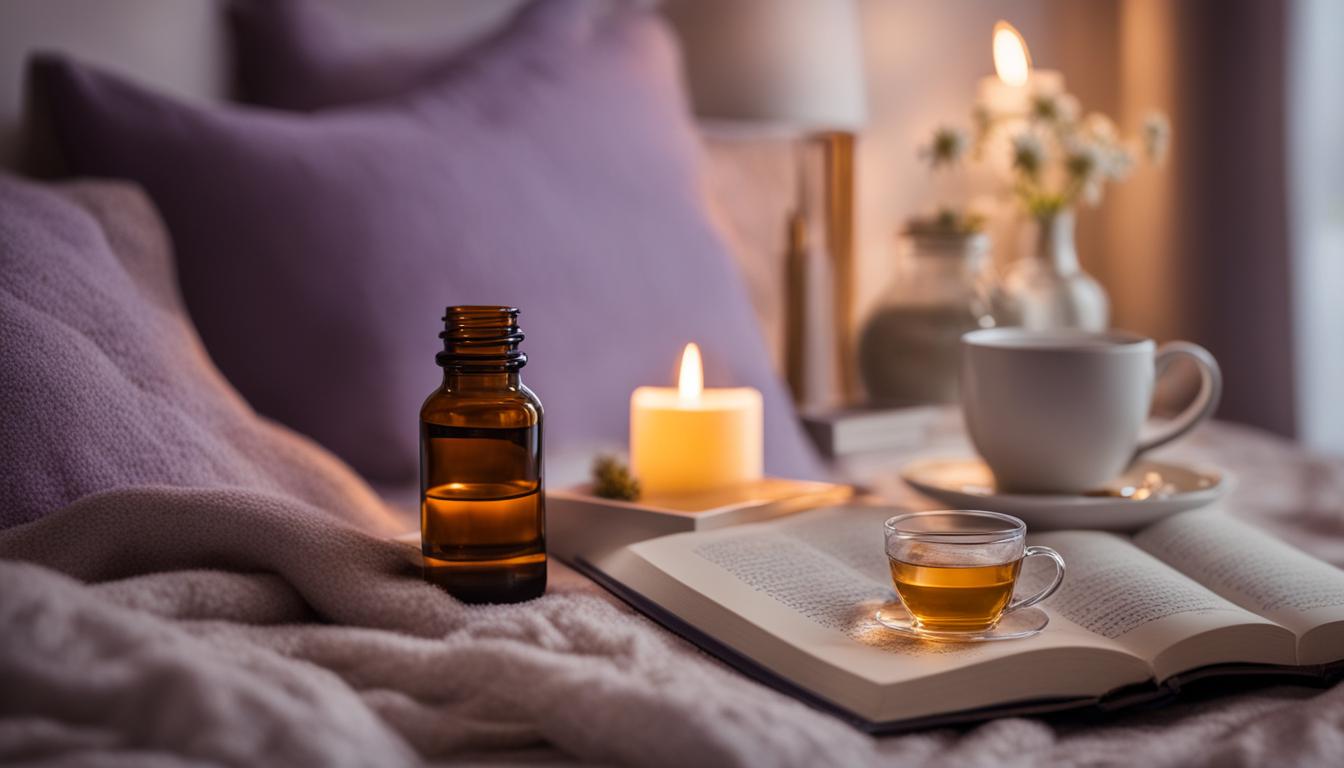
2. Put Away Electronics Before Bed
Digital devices emit blue light that can delay melatonin production and keep your brain alert. Consider a tech-free bedroom zone and replace screens with calming rituals to protect your circadian rhythm and improve overall sleep hygiene.
- Switch to night mode settings in the evening
- Replace screens with books or journaling
- Create a device-free space around your bed
Learn how blue light affects sleep and how to block it naturally: read our guide.
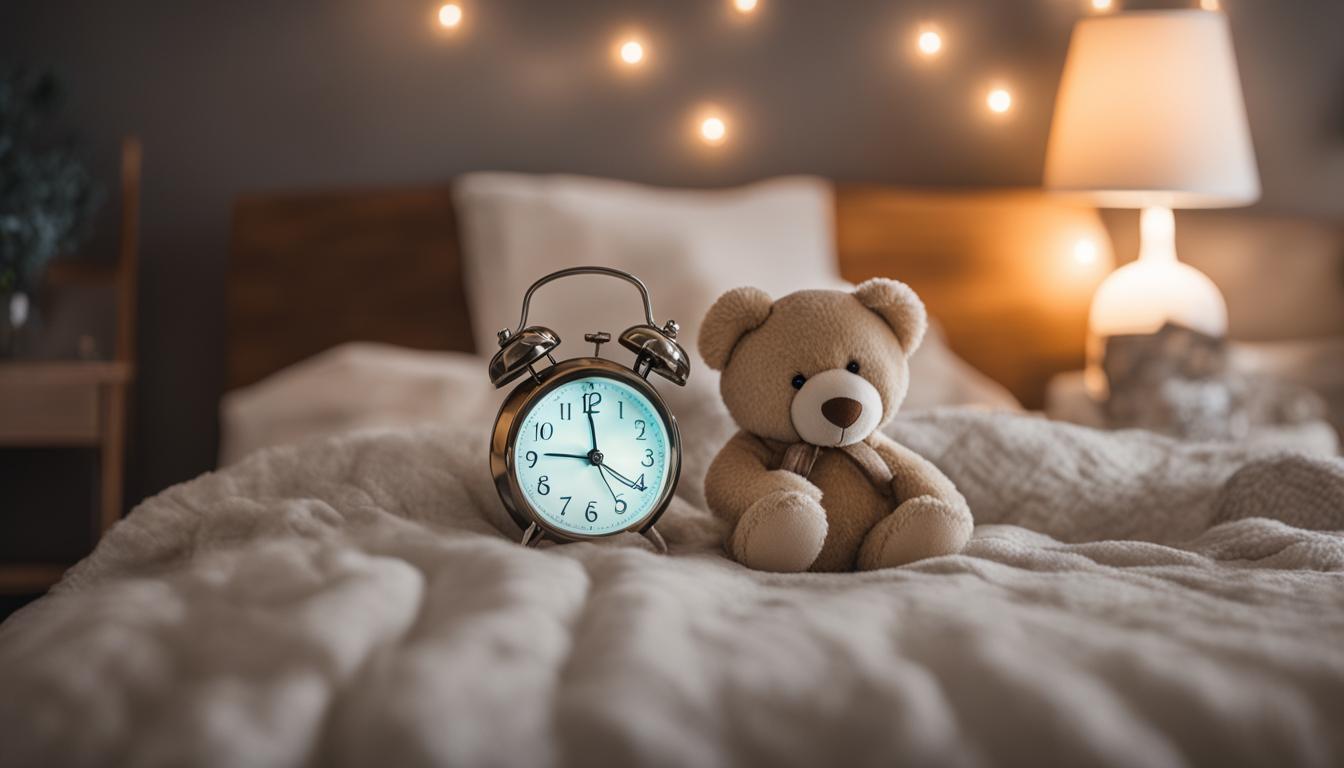
3. Enjoy a Light Snack or Bedtime Tea
Low blood sugar can interrupt sleep, while overeating can cause discomfort. A calming tea or light snack can stabilize your body for a smoother night.
- Try bananas, oatmeal, or nut butter toast
- Herbal teas like chamomile or rooibos are soothing
- Avoid caffeine or sugar late in the day

4. Take a Warm Bath or Shower
A warm soak helps trigger a slight drop in core body temperature afterward, which signals the body that it’s time for sleep. Dim the lights, add a calming scent, and let the transition to bedtime feel effortless.
- Add lavender or eucalyptus essential oils
- Try a five-minute shower if you’re short on time
- Use soft lighting to stay relaxed afterward
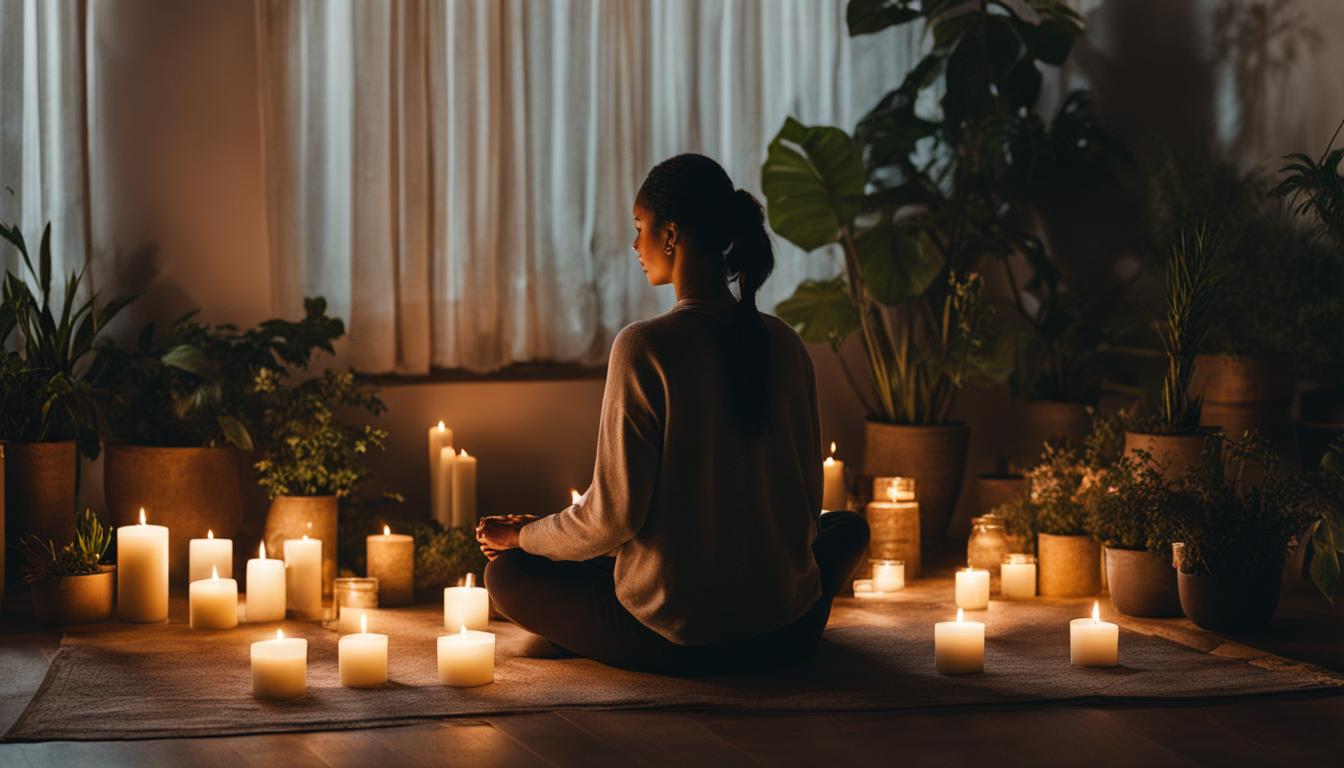
5. Listen to Calming Music or Sounds
White noise, ambient music, or nature sounds can help your brain detach from stress and drift off faster. Keep the volume low and consistent to mask disruptive noise without stimulating the brain.
- Use sleep playlists or sound machines
- Try rain, waves, or gentle piano tracks
- Keep the sound low and steady

6. Practice Relaxation Techniques
Simple techniques like deep breathing, guided imagery, or progressive muscle relaxation activate the parasympathetic nervous system — your body’s “rest and digest” mode.
- Try a 4–7–8 breathing cycle
- Use apps with guided meditations
- Add calming scents like lavender
Support your wind-down with a serene, clutter-free sleep space: see our ideal sleep environment guide.
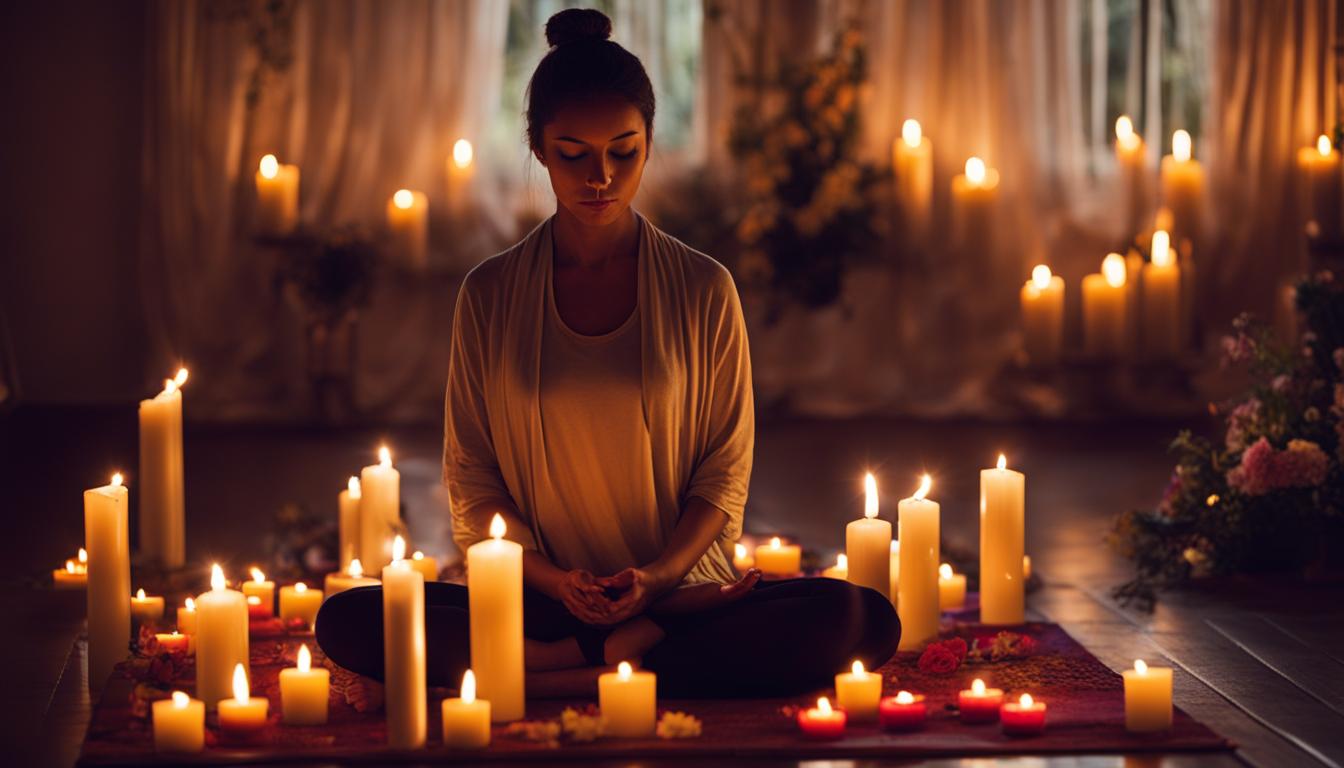
7. Journal or Write a To-Do List
Clearing mental clutter eases nighttime worry. A quick gratitude entry or tomorrow’s top three tasks can help your mind power down.
- One-line gratitude journaling
- List tomorrow’s top 3 tasks
- End with a reflection on peace
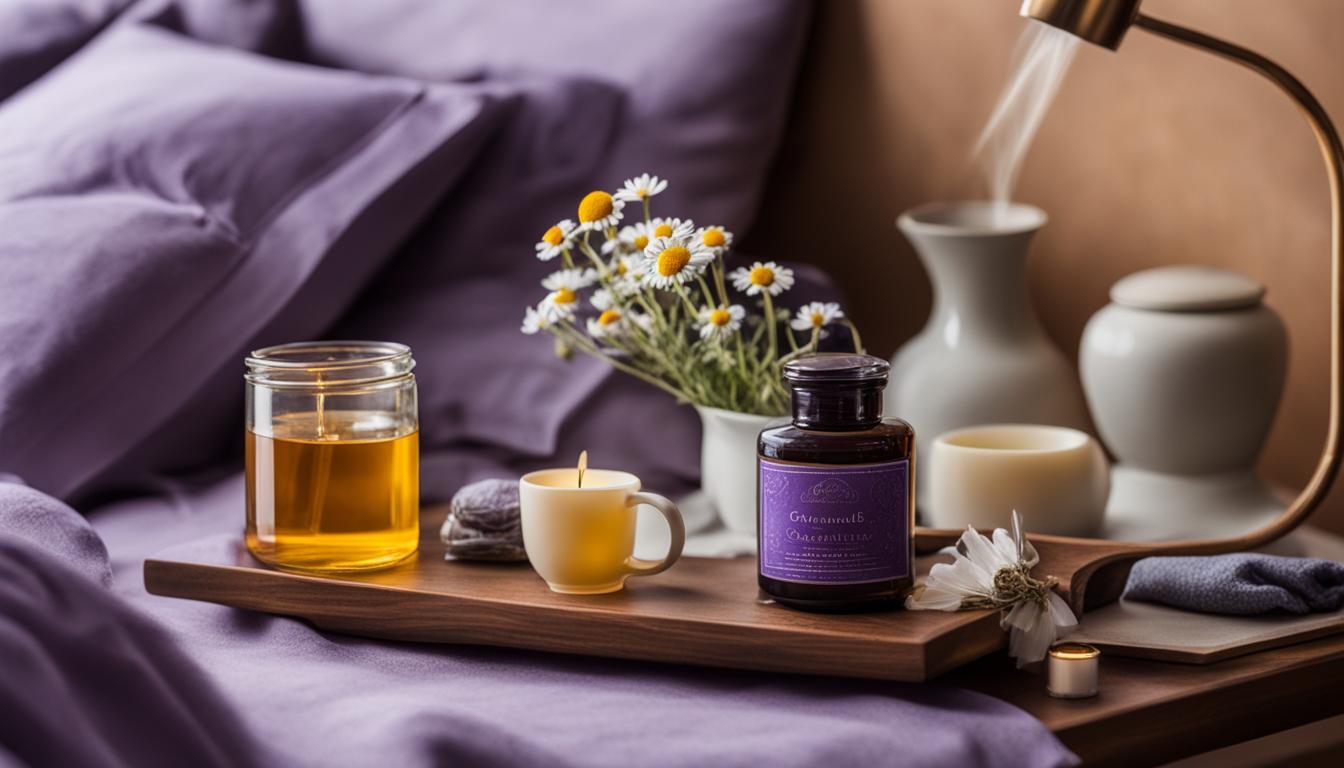
8. Create a Sleep-Friendly Bedroom
Your bedroom should be cool, dark, and quiet. Adjust color palette, lighting, temperature, and bedding to support sleep — aim for 60–67°F and minimize light leakage.
- Use blackout curtains or a sleep mask
- Keep your bed clear and inviting
- Invest in comfortable, breathable bedding
To improve your sleep from the inside out, read about sleep and gut health and how hormones interact with sleep.
Additional Tips for Better Sleep
Layer these lifestyle habits alongside your bedtime routine for even better results.
- Morning light exposure: Helps set your circadian rhythm — learn more in our guide on light and sleep.
- Gentle movement: Daily walking or yoga supports better sleep
- Avoid caffeine after 2 p.m.: Keeps stimulants out of your system by bedtime
- Stay consistent: Repeating rituals nightly builds long-term improvement — see our tips to create the ideal sleep environment.
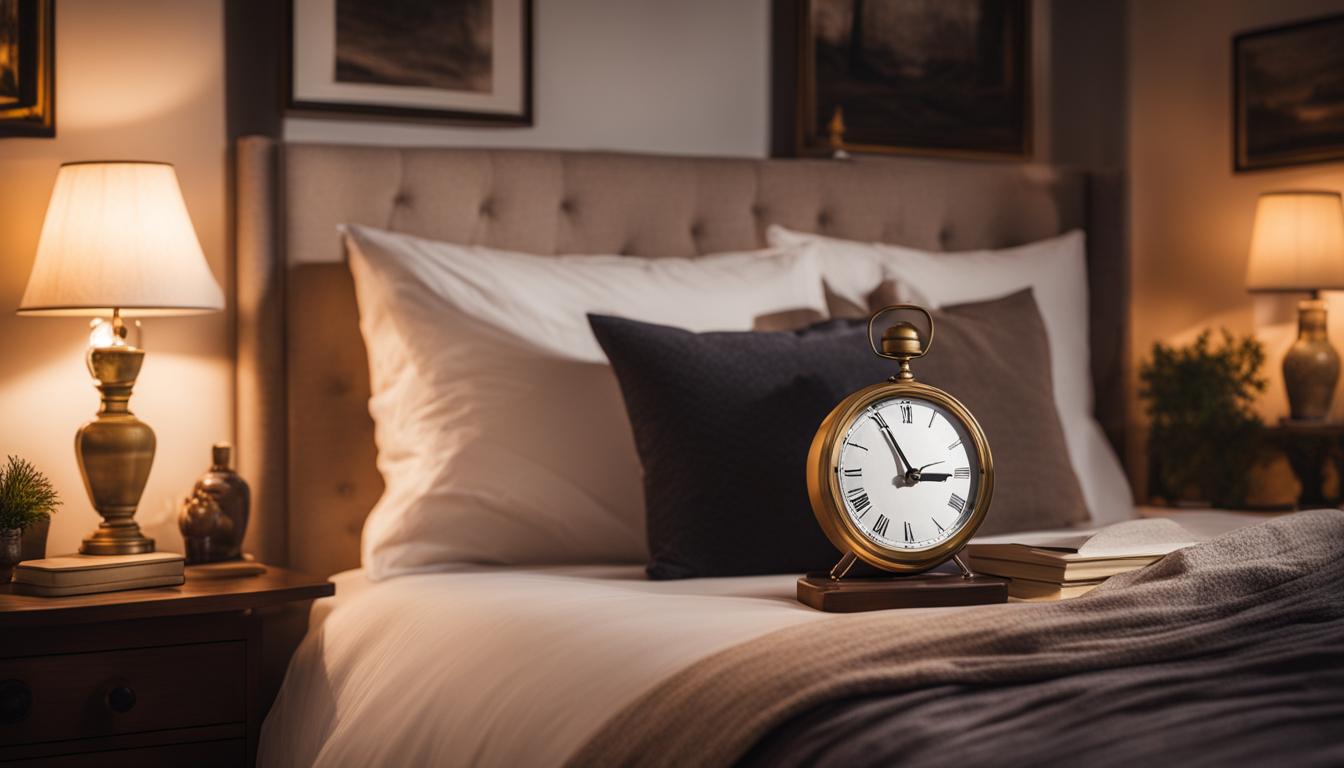
FAQ
- Are bedtime rituals really that important?
- Yes. They help your brain unwind and prepare your body for sleep naturally and gently. Rituals provide the structure your body craves to ease into rest mode.
- How long does it take to see results?
- Most people notice better sleep within one to two weeks of consistent bedtime rituals.
- Can bedtime rituals help kids and teens?
- Absolutely — structured nighttime routines benefit all age groups, especially those with trouble winding down.
- What should I avoid doing before bed?
- Avoid large meals, bright light exposure, and vigorous exercise in the hour before bedtime.
Final Thoughts
Choose one or two bedtime rituals to try tonight and build from there. With consistency, these small habits can bring big rewards — deeper rest, brighter mornings, and a calmer you. For more cozy, science-backed sleep ideas, explore guides from Cozy Bed Quarters and share this with someone who deserves peaceful nights.
Related Reading from Cozy Bed Quarters
- Unlock Restful Nights: Creating the Ideal Sleep Environment
- Morning Sunlight Exposure Resets Your Circadian Rhythm
- How Sleep and Hormone Balance Work Together
Other Reading We Found Popular
- Sleep Foundation: Healthy Sleep Hygiene Tips
- Architectural Digest: Best Bedroom Ideas of 2025
- Real Simple: Habits That Help You Sleep Better
